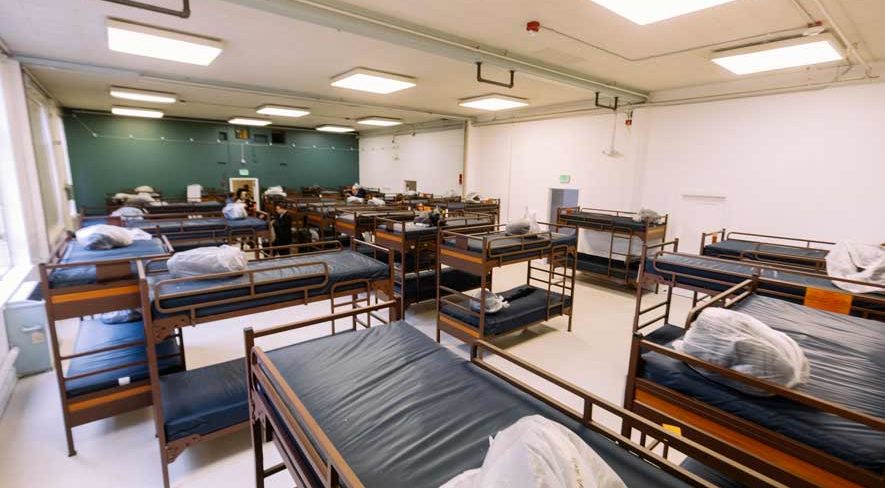On average, I’d say there are two to three overdoses inside my shelter every day. All the staff carry Narcan, but in 10 months I’ve never once seen them use it when someone fell out. It’s the clients—us—who bring them back every time.
Most of us have Narcan of our own, which is why no one’s died that I know of. The majority of the guys are actively using; it’s a shelter for men with substance use disorders, somewhere on the East Coast. There’s even an in-house detox—which is a big reason we have so many ODs in the first place.
When I experienced a relapse, I went through that detox. I was there almost two months. Never knew someone could be in detox that long. The thing is, it’s not really that they make people stay that long; it’s quieter there than the other floors. Day to day, I think it was more peaceful than anywhere else in the building.
When people come out of a detox that long, it’s like coming out of prison—your tolerance is down, and your OD risk is through the roof.
And you get your methadone or your Suboxone, your psych meds, there’s a nurse’s station. After a week or two, you get day passes so you can go take care of things if you need to. Course, they’ll take urine every time you’ve been out. Sometimes random ones, too.
And it’s where we get our Narcan training. On the one hand, it’s good to have that much time to rest, to give your body and your mind a break. But on the other hand, when people come out of a detox that long, it’s like coming out of prison—your tolerance is down, and your OD risk is through the roof. And while some people can go straight into a residential treatment center, like I was able to do, a lot of the guys go back into the regular floors in the same shelter. Right back in the belly of the beast. You’ll see people fresh out of the detox OD all the time.
It would be different if we could get placed in housing of our own. The process is so long. I don’t understand why. It’ll be the same guys for months, playing musical beds four or five times—they’ll lose their spot for missing curfew, so they’re not allowed to get a bed for at least 24 hours, so they’ll sleep on the floor in the cafeteria for a couple days and pop right back up.
I kicked Suboxone during the pandemic. When I remember how painful, how sleepless those days and nights were, I don’t want to put my body through that no more. I’m getting older. The drugs are all different now; you’re not just kicking heroin anymore, you gotta fight all these other ones, too.
I don’t judge anyone for doing what they do, because I don’t forget that I was right there with them. Drugs are people’s way of screaming out into the world. Why is this happening to me? What is this system I’m trapped in? But I’m at a place in my life where my sobriety is very important to me, and this is the environment I’m captured in. It will engulf you, this place.
To my mind, the whole system is designed to trap us here.
When you walk in the front door, you can see the dark cloud. It’s a haze of yelling, people in the bathroom getting high, brothers having seizures. And then the lights come on and its 6 am, and you only got an hour sleep. It’s just like prison, only thing different is the security isn’t aggressive with you.
They’ll get you on a computer, help you with your résumé, teach you how to speak in job interviews. And that’s all good and dandy. But if this is a system designed to help people get over their addiction, if someone’s gotten to that point, why keep them in the mix? The detox has its own floor where the rest of the residents aren’t allowed in, but those of us who are in recovery are surrounded by everyone who’s here because they’re using drugs? It doesn’t make sense.
There are things I try to not think about too much. I try not to think about why I haven’t had the opportunity to go on a housing interview. They told me almost two months ago I got approved for an application. But then they’ll say say, “We’re waiting on that 365-day mark.” I didn’t think that was the criterion. I’ve had four or five different case managers by now. I ask, but they won’t really say. And I don’t want to rock the boat.
A lot of the staff are also in recovery or using. When I see them standing around while we reverse OD after OD, or napping in a bed someone just got kicked out of, I have to remember that a lot of them live in shelters, too—they come to work here during the day and then at night go to a different one. I’ve been told I could get a job here, if only I didn’t live here. To my mind, the whole system is designed to trap us here.
Photograph via King County, Washington





Show Comments